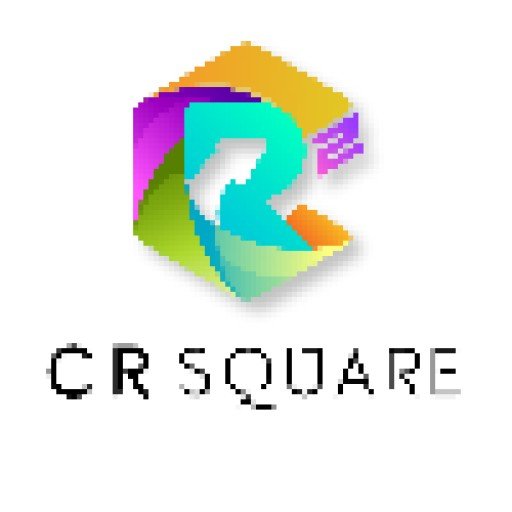[IMPACT]
CR Square Finance - Invoice Finance DEFI Platform, which would act as a catalyst for the version in our vision to the adoption of Web3 or blockchain-based applications for small and medium business users across the world.
Features of Invoice Finance DEFI Platform
1. Raise invoices and receive payments - Raising Secure Invoices' on Blockchain and offer your customers' pay in Crypto and Fiat. Take your business beyond borders. Transact in multiple currencies with the option to add more.
2. Access to Invoice Finance on your invoices (Collateralized and Uncollateralized)
3. Lend stable coins earn APY in stable coins up to 60%
4. DAO approved uncollateralized loans
5. Access to Comprehensive Dashboard - Customizable Dashboard that suit’s your business and organization needs, Know your KPI performance on a single screen.
6. Easier Access Working capital through decentralized finance model across networks through rates determined by the DAO.
7. Raise Invoice of your choice for free - Create and Send Customized Invoices that echo your Brand
Invoice Financing is a typical financial business where it is governed by legacy banking systems. The banks typically accept deposits from the public at lower interest rates and lend them to businesses for a considerably higher rate. The balance is profits for the banker for the risk it is taking.
With the advent of decentralized finance on the top of the blockchain framework where the entire banking process is run in a decentralized and autonomous manner based on smart contracts, the benefits of risk-taking are reaching every investor directly without any pilferage.
For the lender(one who is financing the invoice) the benefits of decentralization and blockchain adoption are as follows:
(i) an immutable and time-stamped record of the existence of every invoice emitted by a borrower.
(ii) an immutable and time-stamped record of the debtor's confirmation, and
(iii) the confirmation and verification of the invoice (against which a lender would fund)
(iv) Automation through smart contracts, which ensures the lender's funds are secure in the event of failure of payment of the invoice by the client/customer.
Hence, the overall invoice financing process will be enhanced. Indeed, the trust and security mechanisms of the blockchain allow for the elimination of on-site audits of receivables and debtors, receivables' notification and debtors' verification, and of month-end reconciliation processes.
Moreover, the adoption of blockchain will also allow for a fast and cheaper value transfer, in particular for cross-border payments.
Challenges
1. Adoption
The Challenge of adoption of new technology based on web3 architecture by small and medium businesses is perceived to be the main challenge, traditionally these businesses pay subscription charges to use accounting software for raising their invoices and Further services like payment gateways, which charge a commission on the transferred amount. A decentralized web3 application like CR Square is going to make this free for use for the business owners in addition to providing incentives in form of CR2 tokens as a reward for every transaction they conduct on the CR Square Finance platform, in addition to access to Invoice Finance would be lucrative for the small and medium business owners to shift to Web3 Invoicing Application instead of web2 applications.
2. Competition
Competitors in this field include Request Network, which is working in the field of Invoices and Payments using crypto and blockchain, however, they have not included Invoice Finance DEFI as a part of their platform.
Other Competitors like Credefi, Polytrade Finance and Trustless capital are in the space of Invoice Finance, but carry the off-chain risk, as their business model is planned to collect capital from the Crypto world and lend to Small and Business Owners off the chain, which will carry the same risks of traditional finance such as cost of compliance, Human Bias and Non Payment of Loans, which can lead to loss of capital of liquidity providers.
CR Square Finance's business model is completely on-chain, without any human intervention based on the complete utilization of the capability of smart contracts. Which we think will attract liquidity providers to our platform and help us challenge the competition.
Risks
1. Security of Liquidity & Collateral Pools
The spectacular growth of decentralized finance (DeFi) continues to bring boundless opportunities and financial perils to crypto users. We’ve witnessed hundreds of millions of funds being lost from hacks, theft, rug pulls, and system failure ever since the disruptive crypto subsector exploded in popularity last year. About $3.1 billion worth of assets were looted from DeFi platforms until date while they caught the attention and imagination of the crypto sector according to defiyield rekt database.
Some of the major security threats in DEFI space and how do we plan to manage them:
1. Flash Loan Attacks – No Flash Loans in Invoice Finance DEFI, the business model of Invoice Finance doesn’t provide the opportunity for Flash Loans.
2. Oracle Manipulation - Oracle manipulation is another huge concern as decentralized networks have no way of accessing data without oracles. The fact of the matter is that getting accurate price data that is secure and reliable is difficult. And oracles are even more essential to DeFi than flash loans, which means we can’t get rid of them either.
-
Smart Contract Bugs – Always a potential risk, even in case of multiple audits being conducted some platforms have lost funds for unidentified smart contract bug
-
Risk of Government Regulation
Governments would want to regulate Crypto and DEFI space, which is overall good for the market, however, DEFI works with no borders and acts as a parallel finance system, which involves players from across the nations of the world. Hence, the risk of multiple regulations on DEFI Dapps could be a potential threat to the efficient functioning of the platform.
Individual protocols with known developers, or those controlled by corporate token holders, might be pressured to get changes pushed to the protocol. And for protocols that are as decentralized as they claim — run by distributed anonymous communities — regulators could make interaction with the protocol illegal. Or, more likely perhaps, stymie the flow of funds by targeting on-ramps or marking certain protocols as toxic.
[FEASIBILITY]
Timeline for Cardano Network Integration
Week 1 & 2 – Finalize Developers of Marlowe and Plutus
Week 3 & 4 – Finalize Architecture design
Week 5 & 6 – Initialize Code Development
Week 7 & 8 – Continue Code Development & test
Week 9 & 10 – Continue Code Development & test
Week 11 & 12 – Continue Code Development & test
Week 13 & 14 – Preliminary Smart Contract Audit
Week 15 & 16 – Testing & Deployment of Alpha Version of Application on Cardano Network
Week 17 & 18 – Launch of V1 of Invoice Finance Application with Collateral
Week 19 & 20 – Launch of Liquidity and Collateral Pools
Week 21 & 22 – Launch of Credit Rating System
Week 23 & 24 – Final Smart Contract Audit
Week 25 – Phase 1 Version Launch
Week 26 & Beyond
Deployment of DAO Application
Deployment of Payroll Application
Integration with QuickBooks, Zoho & Other Accounting Applications
Introduction DAO Approved Non-Collateral Loans based on Credit Rating System
Launch of Fiat-Crypto-Fiat Invoices
Testing of DAO approved Working Capital Lending Application of Organizations
Deployment of Payroll Finance
Launch of V3 of Invoice Finance Application
Launch of DAO Approved WCL Application
Testing and Deployment of Complete Inventory, Logistics and Finance Modules
We are already developing on EVM Compatible Smart Contracts, hence our UI and UX, Front End and Back End development is completed. The grant we request is for the integration of Cardano Network to our application
CARDANO Network Integration - $ 60,000 (Outsource Cost to Marlowe and Plutus Developers)
Smart Contract Audit - $ 15,000
Additional Infrastructure - $ 5,000
Marketing - $ 20,000
<https://whitepaper.crsquare.finance/team>
Core Team - 5 Members
Yasaswy Sarma Veluri - CEO & CO-Founder (CA with a Decade of Experience in Shared CFO Services & International Transaction Advisory)
Avinash Leburu - COO & CO-Founder (CA, SAP Consultant and Blockchain Strategist)
Jeevan Sashank - CTO (IIT, Madras Alumnus)
Pavan Kumar - Front End Developer (IIT, Madras Alumnus)
Elangovan Gopal - Front End Developer (IIT, Madras Alumnus)
Working Team - 8 Members
Advisors - 5 Members
Evan Luthra - Strategic Advisor (Featured in Forbes 30 Under 30, Accredited Angel Investor, Leading Key Opinion Leader in Blockchain World)
Paulo Carneiro - Strategic Advisor (Founder and Director at Гап Джанкшан)
Oksana Belousova - Marketing Advisor (Leading Marketing Advisor, Promoted 25+ Blockchain Projects)
Ponshanker - Security Advisor (Senior Manager - Technology Risk at KPMG New Zealand)
Frank Desifone - IDO Advisor (Leading IDO Advisor, Supported 50+ Blockchain Projects)
<https://linktr.ee/crsquare.finance>
[AUDITABILITY]
Key Performance Indicators
1. Total Value Locked (TVL) - Amount of Value Locked in the Liquidity Pools
2. No of Invoices & Volume of Invoices Raised
3. No of On-Chain Payments Received
4. No of Loans Users Registered
5. Overall Health Factor of the Platform
6. Platform Fees Generated & Shared to gCR2 (governance) token holders
7. Total Percentage of CR2 Tokens locked for gCR2 (governance) Tokens
8. Overall Average Collection Period of Platform
9. Overall Invoice Value Financed by the Platform
Imagine, a world where the entire processes of businesses are done seamlessly through distributed ledger systems, with multiple organisations who are using multiple isolated systems are connected through a single distributed ledger creating a combined single truth. Reducing Errors, Increased Efficiency, Cost Reduction, Fraud Prevention and Saving countless hours of the time of businesses in reconciliations and disputes.
Sounds like a Utopian Ideology, where everyone knows all the benefits of being in a perfect environment but have resistance to change due to various internal and external reasons.
In our dream to create a single distributed ledger (ERP on Blockchain) that acts as a connection between two businesses' isolated systems and thereby creating a single truth, we are faced with the question, How, will the businesses come forward and adopt the new technology when they are naturally resistant to change?
Our thought process emerged into creating an incentivised product that lures businesses and organisations into adopting distributed ledger systems by providing invoice financing as a preliminary phase for businesses and organisations to shift to ERP on a blockchain.
To Create a single reality for every transaction shaped by businesses across the world.
To create a decentralised finance platform where every freelancer, creator, professional, small and medium business owner can get quick access to cheaper working capital, without any bias or geographical limitations.
To create a distributed ledger system that will be used by businesses across the world to jointly record their transactions, which would be easy to adopt & use, interoperable, increases efficiency, reduces cost and saves time.
New Project.
SDG Rating
SDG goals:
Goal 1. End poverty in all its forms everywhere
Goal 8. Promote sustained, inclusive and sustainable economic growth, full and productive employment and decent work for all
Goal 10. Reduce inequality within and among countries
SDG subgoals:
8.3 Promote development-oriented policies that support productive activities, decent job creation, entrepreneurship, creativity and innovation, and encourage the formalization and growth of micro-, small- and medium-sized enterprises, including through access to financial services
Key Performance Indicator (KPI):
8.3.1 Proportion of informal employment in total employment, by sector and sex
proposertoolsdg
===============




